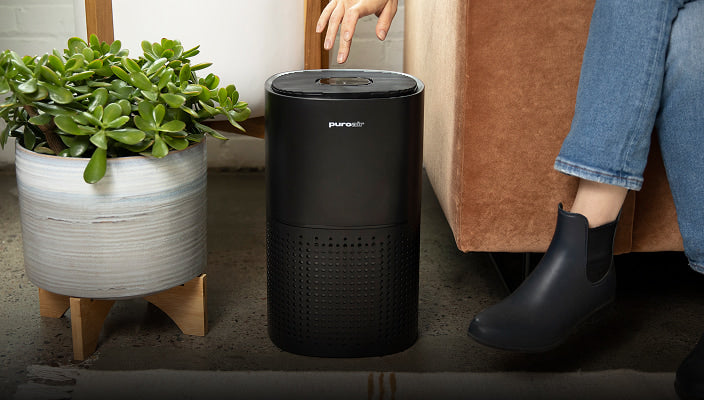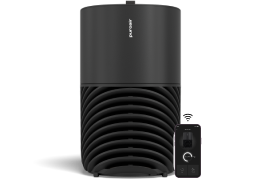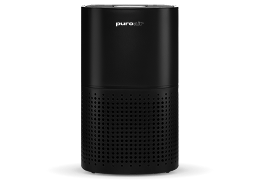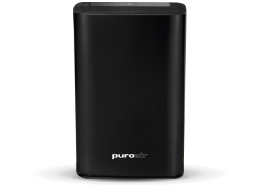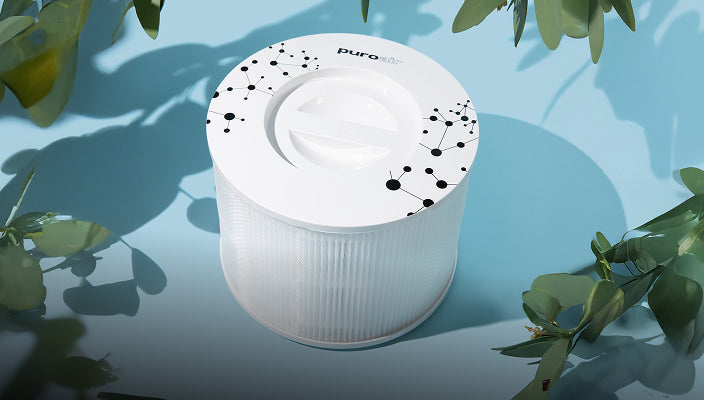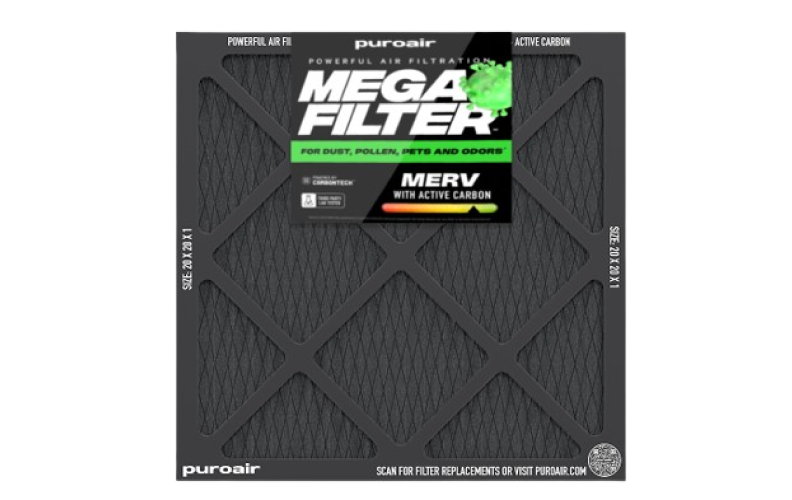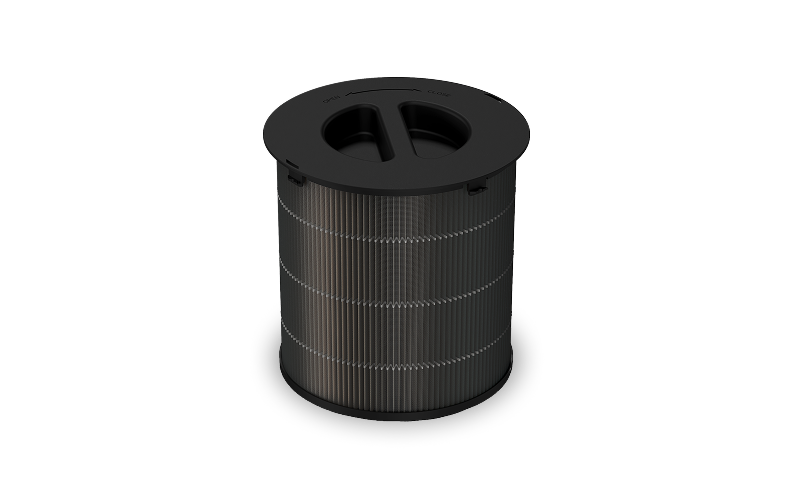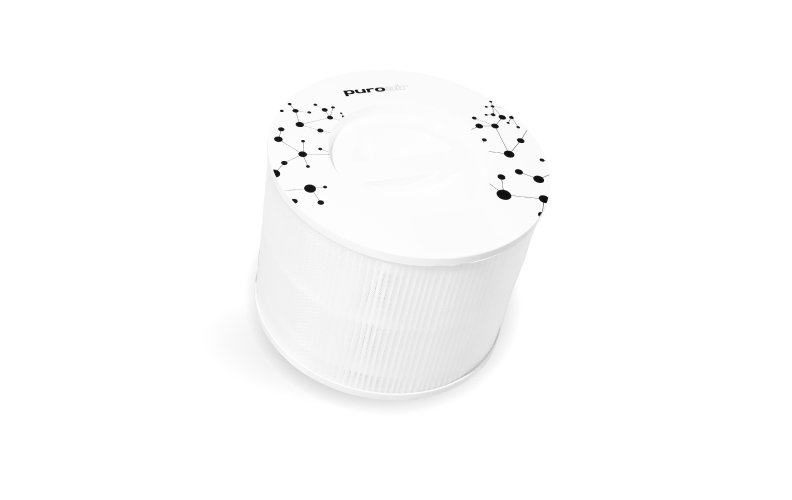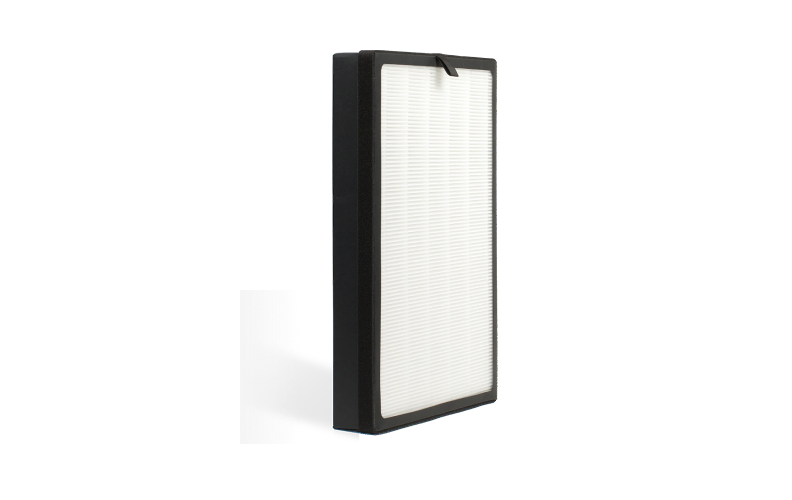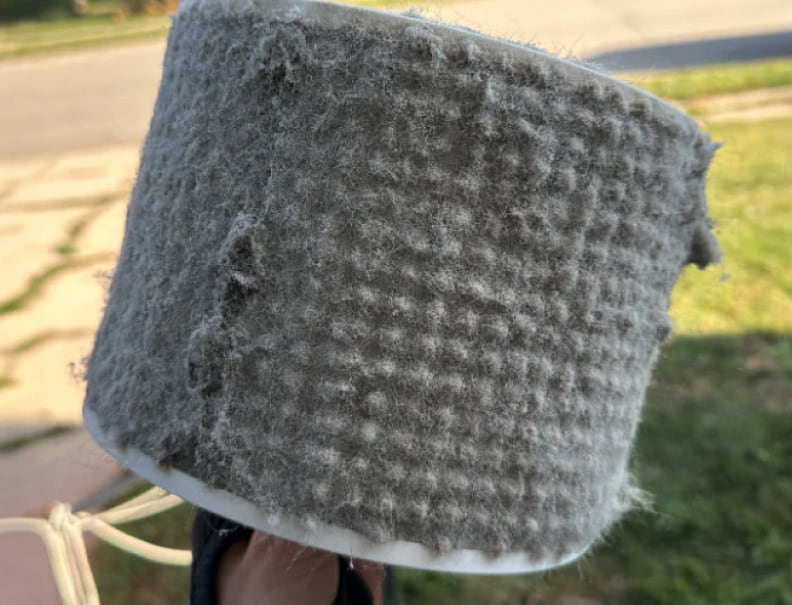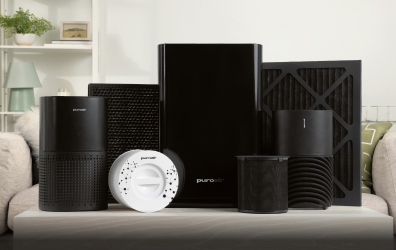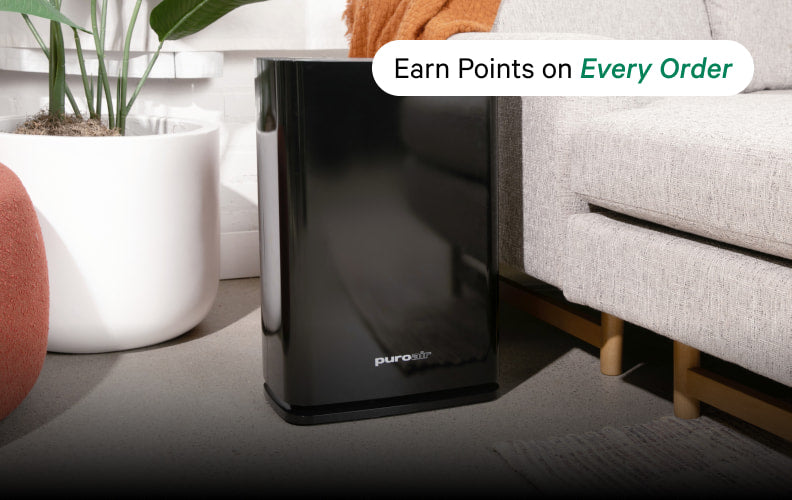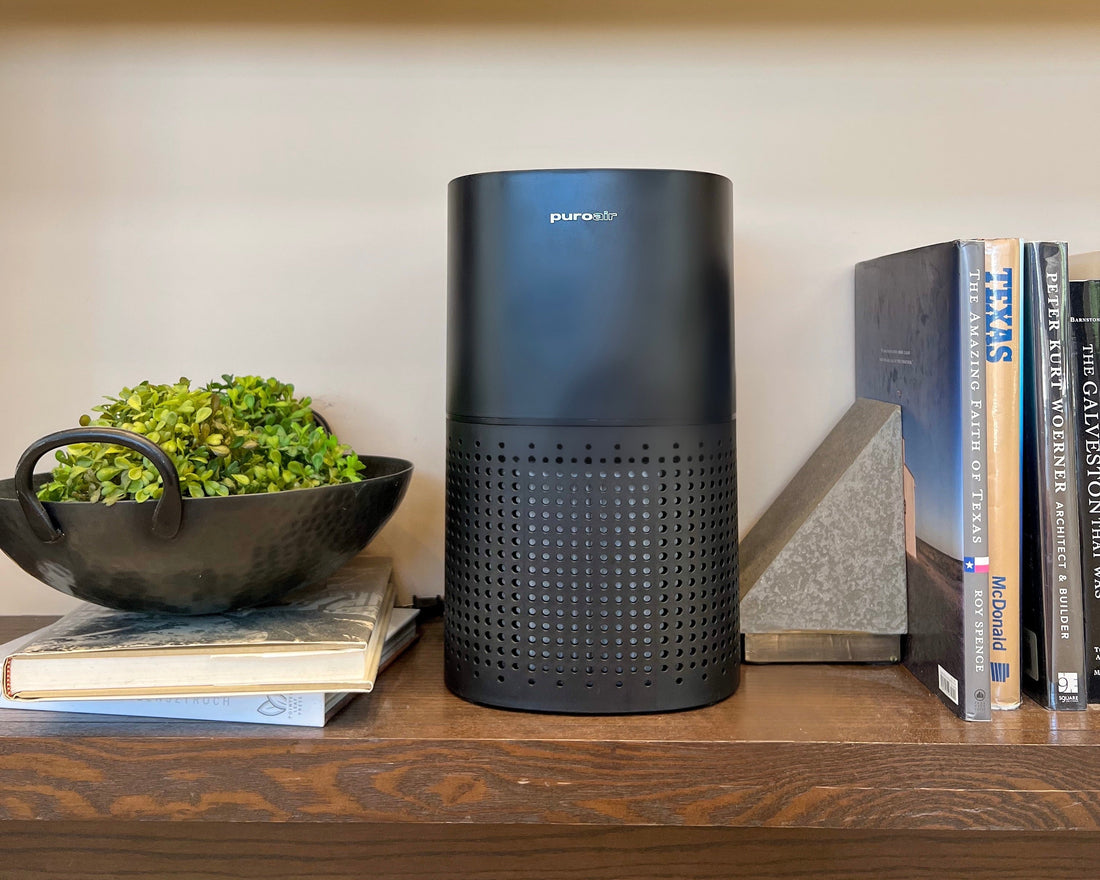The Science of Fresh Air: Unveiling the Power of Air Purifiers in Your Home
In our modernized world, the health of the air we breathe is an overarching concern. Whether we're indoors or outdoors, air quality can significantly affect our well-being. With the rise of health-conscious living, the home air purifier has stepped into the limelight as a crucial ally in maintaining a cleaner and healthier living environment. But what is it about these unassuming devices that makes them so beneficial?
What Exactly Does an Air Purifier Do?
An air purifier, in the simplest terms, is a device that filters and cleans the air in your home. It works by capturing and eradicating particles, including allergens*, dust, and pollutants, to ensure the air in your living space is as clean as it can be.
The most effective air purifiers utilize High-Efficiency Particulate Air (HEPA) filters, which are capable of trapping particles down to a size of 0.1 microns with an impressive efficiency of up to 99.9%, drastically improving indoor air quality.
Types of Air Purifiers and Their Effectiveness
There isn't a one-size-fits-all solution when it comes to air purification; various technologies offer distinct benefits depending on the user's needs. Mentioning different types of air purifiers, such as ionizers, UV purifiers, and carbon filters, will help establish the range of options available to readers.
The Verity of Filters in An Air Purifier
HEPA filters are the gold standard for air purifiers, but there are also other types worth considering for specific purposes:
- Activated carbon filters are excellent at neutralizing odors and trapping larger particles such as pet dander.
- UV-C filters use UV light to kill and sterilize potentially harmful bacteria and germs.
- Polarized-media electronic filters charge particles that can then be captured magnetically to the filter.
- Charged Media Filters use electrostatic attraction to trap the particles suspended in the air.
Each type has its distinct way of cleaning the air, forming a multi-layered defense system against hazardous pollutants.
The HEPA Champion
A HEPA filter is the top tier when it comes to home air purification. Pioneered in the medical field, HEPA filters are now available for home use, promising to capture up to 99.9% of particles as small as 0.1 microns. This means that the air you breathe is nearly hospital-grade clean, offering the ultimate protection against diseases and allergens*.
The PuroAir 240 Air Purifier, for example, is equipped with a HEPA filter that cleans up to 99.9% of air pollutants in just over an hour, an impressive feat supported by acclaimed scientists from leading institutions.
The Many Roles of an Air Purifier in Your Home
The versatility of air purifiers is what makes them so indispensable in contemporary living. From allergens* to odors, air purifiers tackle a variety of issues efficiently and effectively.
Guarding Against Microscopic Threats
In an era where health has become a paramount concern, air purifiers have emerged as frontline defenders against invisible enemies. Small particles and bacteria, responsible for a myriad of illnesses ranging from the common flu to more severe respiratory conditions, can circulate freely within indoor environments. The inclusion of technologies like HEPA filters and UV-C sterilization in air purifiers serves as a critical barrier, reducing the likelihood of these pathogens spreading through the air we breathe. It's not just about capturing dust or cleaning odors; it's about creating a safe haven that actively protects the well-being of its occupants by minimizing their exposure to potential health risks.
Allergy Season Ally
For those sensitive to seasonal allergens* like pollen or grass, an air purifier can provide much-needed relief. By capturing these irritants, they prevent them from causing symptoms like sneezing, watery eyes, and congestion, thus enabling allergy sufferers to breathe easier.
Odor Obliterator
Air purifiers with activated carbon filters excel in the war against unwanted smells. Whether it's the pungency of pet odors or the lingering aroma of a culinary endeavor, these filters absorb and neutralize odorous particles, leaving your home smelling clean and fresh.
Pet Pal
Pet owners know that with the joy of animal companionship also comes the chore of managing pet dander and hair. An air purifier with a HEPA filter can be especially beneficial, capturing pet allergens* and keeping the air clean for both pet and owner.
A Smoke-Free Sanctuary
Cigarette smoke is not just a nuisance; it can be hazardous to health, even in small doses. A high-quality air purifier designed to handle smoke pollutants can significantly reduce the risk of secondhand smoke exposure, making for a healthier living environment.
Wildfire Smoke Warrior
In recent years, the increasing prevalence of large wildfires across the United States has raised significant concerns about air quality in affected and surrounding areas. For residents living near wildfire zones, an air purifier becomes an essential defense mechanism against the harmful particles and gases released by fires. These devices are equipped to filter out fine particulate matter (PM2.5) and other pollutants found in wildfire smoke, thus mitigating health risks and offering a semblance of respiratory relief in such challenging times.
Mold and Pollutants Protector
Indoor air pollutants, including mold spores, can be particularly harmful, especially when they go unnoticed. An air purifier consistently circulating and filtering the air can prevent these pollutants from causing health issues and maintain a safer home environment.
Debunking Air Purifier Myths
With the growing popularity of air purifiers, misconceptions about their effectiveness have also found their way into the public narrative. It is crucial to dispel these myths to communicate the real benefits of these devices.
"Air Purifiers are Just for Allergies"
While air purifiers are a fantastic resource for allergy sufferers, their benefits extend beyond. They can improve respiratory health, ensure a clean environment for children, the elderly, and those with compromised immune systems, and generally enhance well-being for everyone in the household.
"All Air Purifiers are the Same"
The type and quality of filters used in air purifiers vary greatly and impact their effectiveness. Not all air purifiers are created equal. It's important to do thorough research to find one with the right specifications for your specific needs.
"Air Purifiers Are Only for Closed Spaces"
Air purifiers can be used effectively in a variety of spaces, whether it's a bedroom, living room, or even an entire home. The key is to select an air purifier with a Clean Air Delivery Rate (CADR) suitable for the square footage of the room or home.
The Environmental Impact of Air Purifiers
Concerns about environmental impact are valid, especially in a climate-conscious age. It's worth addressing how air purifiers can contribute to sustainability along with improving air quality.
Energy-Efficient Air Purifiers
Many modern air purifiers are designed with energy efficiency in mind. They use smart technologies to sense air quality levels and adjust their power consumption accordingly, saving energy without compromising on performance.
Integrating Air Purifiers into Your Wellness Routine
With wellness becoming a top priority for many, air purifiers with their health benefits can be seamlessly integrated into personal wellness routines.
Strategically Placed Purifiers
Placing air purifiers in common areas, near pet sleeping areas, or close to frequently used furniture can provide targeted cleaning, ensuring the spaces you inhabit the most are the cleanest.
Scheduling Cleaning Cycles
Some air purifiers offer the convenience of scheduled cleaning cycles, which helps in maintaining clean air consistently, especially in high-traffic areas or during times when air quality might be compromised.
Smart Filter Replacement Notifications
Finding an air purifier that includes a feature for alerting you when the filter needs replacement combines convenience with efficiency. This smart functionality ensures your air purifier operates at its best by reminding you at the appropriate time to replace the filter. Additionally, some models, like the PuroAir 130i Smart Air Purifier, are connected to mobile applications that not only alert you about filter life but also provide direct links for purchasing replacements.
Filter Subscription Services
To further simplify maintenance, consider air purifiers that come with a subscription service for filter replacements. With this service, new filters are automatically sent to you at regular intervals, so there is the need to remember when to purchase a new one. This ensures your air purification system remains effective without any guesswork, supporting a consistently clean and healthy indoor environment.
Making the Choice for Healthier Air
Choosing to incorporate an air purifier into your home is a decision that prioritizes health and well-being. By selecting the right type of purifier with the most suitable filters and features, you can create an environment where breathing is effortlessly soothing.
Investing in an air purifier is investing in your health and quality of life. With options available for every budget and need, the barrier to entry for clean indoor air has never been lower. Make the switch, and experience the difference an air purifier can make in your home.
In conclusion, the science behind air purifiers is not just about clean air but also about enabling a lifestyle that promotes health and happiness. By understanding the technology and its implications, individuals can make informed decisions that shape their environment for the better. Whether it's for peace of mind during allergy season or ongoing protection against pollutants, the air purifier stands as a testament to innovation meeting need in the most fundamental way—safeguarding the air we breathe.
*Tested to remove Fel d 1 and pollen in an ISO 17025 certified lab.

